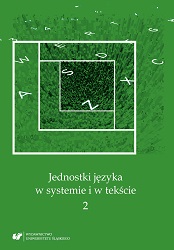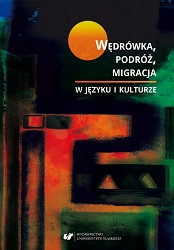Author(s): Małgorzata Karwatowska,Adam Siwiec / Language(s): Polish
Publication Year: 0
Niewiadomski’s work constitutes an original and open to different interpretations lecture on the topic of the map as a text of the world, a model of experience and a form of cognition, into which a cartographic narrative has been inscribed, delineating the geopoetic shape of the discourse possible to reconstruct from the text. It is an essentially essayist discourse, one which eschews formal boundaries and limitations regarding the approach to the subject, using the autobiographical and fictional conventions, linking academic knowledge and erudition with literary work, philosophy with rhetoric, or, in other categories: direct and indirect representation, linking them through image and metaphor. The conceptually original approach to the topic is predicated on the concept of the essayist work as delineated in the discussed work (Musil’s writing) as well as a certain reflexivity characteristic of the essay, maintaining the connection with the model of authorial relationship with the world and revealing the author’s “I” (self‑presentation), intertextuality and the quotation technique, which are based on the modal framework of the utilized essayist discourse: interactive stance and dialogism (a dialogue between the author and himself as well as his writing project, realized in the act of writing, as well as a dialogic stance towards the intended reader). Other characteristics possible to find in the text are the stacking of meanings, departure from monosemy, and, in the sphere of composition: non‑linear narrative. All of those elements come together in a particular way to form the lecture on the subject of the ontology of the map, while also influencing the reading of Niewiadomski’s essay, which is a difficult text to read and comprehens, requiring particular literary and cultural competences from the reader.
More...


